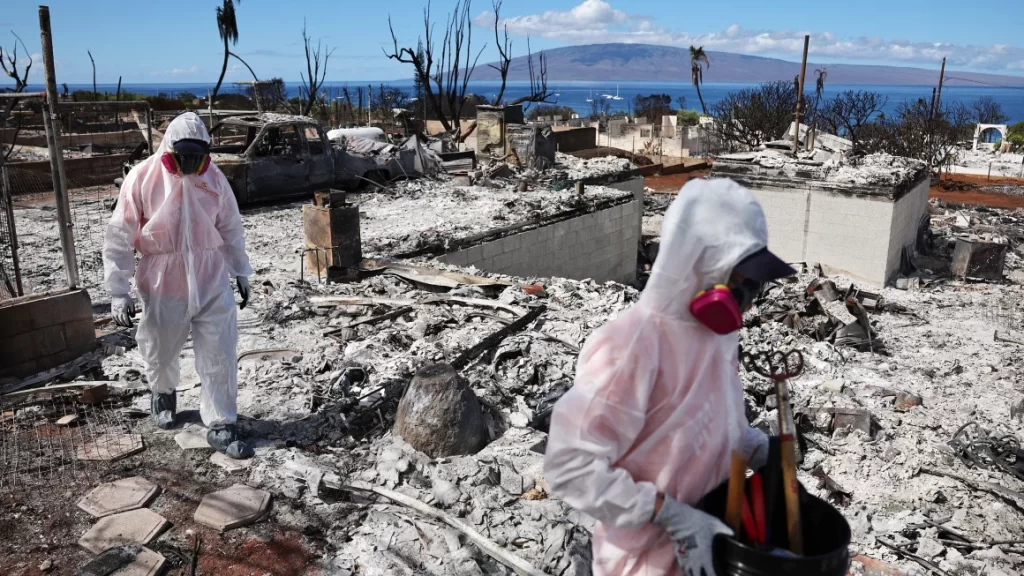The National Institutes of Health (NIH) will cease funding work on the health effects of climate change, according to internal documents reviewed by ProPublica.
This guidance, distributed to staff last week, follows a series of directives to cut NIH funding for grants focused on topics deemed at odds with the Trump administration’s priorities, including gender identity, LGBTQ+ issues, vaccine hesitancy, and diversity, equity, and inclusion.
While it’s unclear if this climate-related directive will affect existing grants or lead to funding terminations, it effectively halts future funding opportunities for studies or academic programs examining the health impacts of climate change.
Dr. Lisa Patel, executive director of The Medical Society Consortium on Climate and Health, characterized the move as “catastrophic” and said it aligns with the fossil fuel industry’s agenda. She warned of the “devastating” impact on crucial research.
As extreme weather events like hurricanes, heat waves, wildfires, and floods intensify, researchers are increasingly investigating the link between climate change and public health. The NIH, a major funder of biomedical research, has supported numerous grants and programs in this area.
In 2021, under President Biden, the agency launched the Climate Change and Health Initiative to boost research and training. Though it received congressional funding in recent years, the initiative and other related programs were recently dismantled, according to reports.
The new directive cuts all future climate change and health funding across the NIH, regardless of its connection to the previously canceled initiative.
A Department of Health and Human Services (HHS) spokesperson stated that the agency is “taking action to terminate research funding that is not aligned with NIH and HHS priorities,” aiming to prioritize research that “directly affects the health of Americans.”
Linda Birnbaum, a former NIH director, noted that climate and health researchers faced challenges during Trump’s first term but were able to continue their work. She emphasized the importance of NIH research in preventing and addressing climate-related health impacts.
An NIH report from December listed numerous climate change and health projects, including studies on the health effects of wildfires and heat. The Trump administration has since removed the report from public access.
Veena Singla, an adjunct assistant professor at Columbia University, highlighted the visible harm caused by extreme heat and weather.
This NIH directive aligns with the Trump administration’s broader efforts to curtail climate change documentation and mitigation. Trump has paused billions in climate-related spending and issued executive orders promoting fossil fuel production.
The administration is also considering eliminating the EPA’s scientific research office, potentially resulting in the dismissal of over 1,000 scientists, some of whom study the health effects of climate change.
The NIH and White House did not respond to requests for comment. The EPA did not clarify whether climate change and health research would continue at the agency. The EPA press office stated that the “Trump EPA is dedicated to being led by our commitment to the agency’s core mission of protecting human health and the environment.”
Trump’s stance on climate change appears to contradict that of his health secretary, Robert F. Kennedy Jr., who has acknowledged the reality and human cause of the climate crisis. However, Patel believes Kennedy will not challenge the administration’s agenda.



